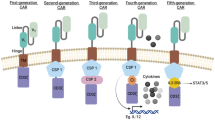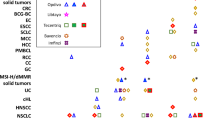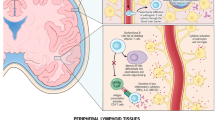Abstract
Purpose of Review
Advances in multiple myeloma therapies have greatly improved outcomes for patients living with the disease, although to date there is yet to be a cure. Cellular and immunotherapies, approved or in development, offer the promise of significantly advancing toward that possibility. The aim of this review is to provide a synopsis and commentary on the current and future states of bispecific agents aimed at harnessing the antineoplastic potential of T-cells in treating and eradicating myeloma.
Recent Findings
Numerous bispecific agents are in clinical development with some on the precipice of regulatory approval. While BCMA remains the principal target, some agents are directed at novel targets such as GPRC5D and FcRH5. The constructs vary in design and pharmacokinetics which has dosing and administration implications. The toxicity profiles of these agents generally reflect that of other immune therapies, including cytokine release syndrome and rarely neurotoxicity, although immunosuppression has also led to elevated infection risks. However, the toxicities are generally manageable and offset by unprecedented efficacy seen in such heavily pretreated cohorts.
Summary
Bispecific agents are poised to significantly alter the treatment paradigms for myeloma. They provide a convenient “off-the-shelf” platform with often deep and durable responses. Toxicities are often limited in duration and severity. In the early-phase trials, many patients have been able to remain on treatment for extended periods, even among those with high-risk features. Upcoming trials are likely to explore earlier implementation of these agents in order to offer this therapeutic opportunity to broader cohorts.

Similar content being viewed by others
References
Papers of particular interest, published recently, have been highlighted as: • Of importance •• Of major importance
Sonneveld P, Broijl A. Treatment of relapsed and refractory multiple myeloma. Haematologica [Internet]. 2016;101(4):396–406. Available from: http://www.ncbi.nlm.nih.gov/pubmed/27033237
Chim CS, Kumar SK, Orlowski RZ, Cook G, Richardson PG, Gertz MA, et al. Management of relapsed and refractory multiple myeloma: novel agents, antibodies, immunotherapies and beyond. Leukemia [Internet]. 2018 Feb 19;32(2):252–62. Available from: http://www.nature.com/doifinder/10.1038/leu.2017.329
Dimopoulos MA, Oriol A, Nahi H, San-Miguel J, Bahlis NJ, Usmani SZ, et al. Daratumumab, lenalidomide, and dexamethasone for multiple myeloma. New Engl J Med [Internet]. 2016;375(14):1319–31. Available from: http://www.nejm.org/doi/10.1056/NEJMoa1607751
Palumbo A, Chanan-Khan A, Weisel K, Nooka AK, Masszi T, Beksac M, et al. Daratumumab, bortezomib, and dexamethasone for multiple myeloma. New Engl J Med [Internet]. 2016 Aug 25;375(8):754–66. Available from: http://www.nejm.org/doi/10.1056/NEJMoa1606038
Voorhees PM, Kaufman JL, Laubach J, Sborov DW, Reeves B, Rodriguez C, et al. Daratumumab, lenalidomide, bortezomib, and dexamethasone for transplant-eligible newly diagnosed multiple myeloma: the GRIFFIN trial. Blood [Internet]. 2020 Aug 20;136(8):936–45. Available from: https://doi.org/10.1182/blood.2020005288
Viola D, Dona A, Gunes EG, Troadec E, Wu X, Branciamore S, et al. Immune mediated mechanisms of resistance to daratumumab. Blood [Internet]. 2018;132(Suppl 1):3201 LP – 3201. Available from: http://www.bloodjournal.org/content/132/Suppl_1/3201.abstract
de Weers M, Tai YT, van der Veer MS, Bakker JM, Vink T, Jacobs DCH, et al. Daratumumab, a novel therapeutic human CD38 monoclonal antibody, induces killing of multiple myeloma and other hematological tumors. J Immunol [Internet]. 2011;186(3):1840–8. Available from: http://www.ncbi.nlm.nih.gov/pubmed/21187443
Ghose J, Viola D, Terrazas C, Caserta E, Troadec E, Khalife J, et al. Daratumumab induces CD38 internalization and impairs myeloma cell adhesion. Oncoimmunology [Internet]. 2018 Jul 23;7(10):e1486948–e1486948. Available from: https://pubmed.ncbi.nlm.nih.gov/30288349
Viola D, Dona A, Caserta E, Troadec E, Besi F, McDonald T, et al. Daratumumab induces mechanisms of immune activation through CD38+ NK cell targeting. Leukemia [Internet]. 2021;35(1):189–200. Available from: http://www.nature.com/articles/s41375-020-0810-4
Díaz-Tejedor A, Lorenzo-Mohamed M, Puig N, García-Sanz R, Mateos MV, Garayoa M, et al. Immune system alterations in multiple myeloma: molecular mechanisms and therapeutic strategies to reverse immunosuppression. Cancers (Basel). 2021;13(6):1353.
Dhodapkar M v. MGUS to myeloma: a mysterious gammopathy of underexplored significance. Blood. 2016;128(23):2599–606.
Cornell R, Hari P, Tang S, Biran N, Callander N, Chari A, et al. Overall survival of patients with triple-class refractory multiple myeloma treated with selinexor plus dexamethasone vs standard of care in MAMMOTH. Am J Hematol. 2021;96(1):E5-8.
Raje N, Berdeja J, Lin Y, Siegel D, Jagannath S, Madduri D, et al. Anti-BCMA CAR T-cell therapy bb2121 in relapsed or refractory multiple myeloma. New Engl J Med [Internet]. 2019 May 2;380(18):1726–37. Available from: http://www.nejm.org/doi/10.1056/NEJMoa1817226
Berdeja JG, Madduri D, Usmani SZ, Jakubowiak A, Agha M, Cohen AD, et al. Ciltacabtagene autoleucel, a B-cell maturation antigen-directed chimeric antigen receptor T-cell therapy in patients with relapsed or refractory multiple myeloma (CARTITUDE-1): a phase 1b/2 open-label study. The Lancet [Internet]. 2021;398(10297):314–24. Available from: https://doi.org/10.1016/S0140-6736(21)00933-8
Munshi NC, Anderson LD, Shah N, Madduri D, Berdeja J, Lonial S, et al. Idecabtagene vicleucel in relapsed and refractory multiple myeloma. New England Journal of Medicine [Internet]. 2021;384(8):705–16. Available from: http://www.nejm.org/doi/10.1056/NEJMoa2024850
Kantarjian H, Stein A, Gökbuget N, Fielding AK, Schuh AC, Ribera JM, et al. Blinatumomab versus chemotherapy for advanced acute lymphoblastic leukemia. New Engl J Med [Internet]. 2017;376(9):836–47. Available from: https://doi.org/10.1056/NEJMoa1609783
Gökbuget N, Dombret H, Bonifacio M, Reichle A, Graux C, Faul C, et al. Blinatumomab for minimal residual disease in adults with B-cell precursor acute lymphoblastic leukemia. Blood [Internet]. 2018;131(14):1522–31. Available from: https://pubmed.ncbi.nlm.nih.gov/29358182
Shah N, Chari A, Scott E, Mezzi K, Usmani SZ. B-cell maturation antigen (BCMA) in multiple myeloma: rationale for targeting and current therapeutic approaches. Leukemia [Internet]. 2020;34(4):985–1005. Available from: https://doi.org/10.1038/s41375-020-0734-z
Huehls AM, Coupet TA, Sentman CL. Bispecific T-cell engagers for cancer immunotherapy. Immunol Cell Biol. 2015;93(3):290–6.
Labrijn AF, Janmaat ML, Reichert JM, Parren PWHI. Bispecific antibodies: a mechanistic review of the pipeline. Nat Rev Drug Discov. 2019;18(8):585–608.
Labrijn AF, Meesters JI, de Goeij BECG, van den Bremer ETJ, Neijssen J, van Kampen MD, et al. Efficient generation of stable bispecific IgG1 by controlled Fab-arm exchange. Proceedings of the National Academy of Sciences. 2013;110(13):5145–50. Interesting publication on the development and production methodology of bispecific antibodies and the process of Fab-arm exchange
Carpenter RO, Evbuomwan MO, Pittaluga S, Rose JJ, Raffeld M, Yang S, et al. B-cell maturation antigen is a promising target for adoptive T-cell therapy of multiple myeloma. Clin Cancer Res. 2013;19(8):2048–60.
Cho SF, Lin L, Xing L, Li Y, Yu T, Anderson KC, et al. BCMA-targeting therapy: driving a new era of immunotherapy in multiple myeloma. Cancers (Basel). 2020 Jun 5;12(6).
Maus M v, Haas AR, Beatty GL, Albelda SM, Levine BL, Liu X, et al. T cells expressing chimeric antigen receptors can cause anaphylaxis in humans. Cancer Immunol Res. 2013;1(1):26–31.
Hipp S, Tai YT, Blanset D, Deegen P, Wahl J, Thomas O, et al. A novel BCMA/CD3 bispecific T-cell engager for the treatment of multiple myeloma induces selective lysis in vitro and in vivo. Leukemia [Internet]. 2017;31(8):1743–51. Available from: https://doi.org/10.1038/leu.2016.388. Preclinical development of AMG-420.
Topp MS, Duell J, Zugmaier G, Attal M, Moreau P, Langer C, et al. Anti–B-cell maturation antigen BiTE molecule AMG 420 induces responses in multiple myeloma. J Clin Oncol [Internet]. 2020;38(8):775–83. Available from: https://doi.org/10.1200/JCO.19.02657. First study of bispecific construct in multiple myeloma that demonstrated significant efficacy but some issues with tolerability and cytokine release syndrome, as well as logistical challenges as the drug required continuous IV infusion.
Cho SF, Lin L, Xing L, Li Y, Wen K, Yu T, et al. The immunomodulatory drugs lenalidomide and pomalidomide enhance the potency of AMG 701 in multiple myeloma preclinical models. Blood Adv. 2020;4(17):4195–207.
Harrison S, Minnerna M, Lee H, Spencer A, Kapoor P, Madduri D, et al. A phase 1 first in human (FIH) study of AMG 701, an anti-B-cell maturation antigen (BCMA) half-life extended (HLE) BiTE® (bispecific T-cell engager) molecule, in relapsed/refractory (RR) multiple myeloma (MM). In: American Society of Hematology. 2021.
Pillarisetti K, Powers G, Luistro L, Babich A, Baldwin E, Li Y, et al. Teclistamab is an active T cell–redirecting bispecific antibody against B-cell maturation antigen for multiple myeloma. Blood Adv. 2020;4(18):4538–49.
Usmani SZ, Garfall AL, van de Donk NWCJ, Nahi H, San-Miguel JF, Oriol A, et al. Teclistamab, a B-cell maturation antigen × CD3 bispecific antibody, in patients with relapsed or refractory multiple myeloma (MajesTEC-1): a multicentre, open-label, single-arm, phase 1 study. Lancet. 2021;398(10301):665–74. Phase I portion of the clinical trial evaluating the safety and efficacy of teclistimab, with data that are supporting its regulatory application.
Moreau P, Usmani SZ, Garfall AL, van de Donk NWCJ, Nahi H, San-Miguel J, et al. Updated results from MajesTEC-1: phase 1/2 study of teclistamab, a B-cell maturation antigen x CD3 bispecific antibody, in relapsed/refractory multiple myeloma. Blood. 2021;138(Supplement 1):896–896.
Karwacz K, Hooper AT, Chang CPB, Krupka H, Chou J, Lam V, et al. Abstract 4557: BCMA-CD3 bispecific antibody PF-06863135: preclinical rationale for therapeutic combinations. Cancer Research [Internet]. 2020 Aug 15;80(16_Supplement):4557. Available from: https://doi.org/10.1158/1538-7445.AM2020-4557
Sebag M, Raje NS, Bahlis NJ, Costello C, Dholaria B, Solh M, et al. Elranatamab (PF-06863135), a B-cell maturation antigen (BCMA) targeted CD3-engaging bispecific molecule, for patients with relapsed or refractory multiple myeloma: results from Magnetismm-1. Blood [Internet]. 2021;138(Supplement 1):895. Available from:https://doi.org/10.1182/blood-2021-150519
Bahlis NJ, Raje NS, Costello C, Dholaria BR, Solh MM, Levy MY, et al. Efficacy and safety of elranatamab (PF-06863135), a B-cell maturation antigen (BCMA)-CD3 bispecific antibody, in patients with relapsed or refractory multiple myeloma (MM). J Clin Oncol [Internet]. 2021 May 20;39(15_suppl):8006. Available from:https://doi.org/10.1200/JCO.2021.39.15_suppl.8006
Levy M, Bahlis N, Raje N, Costello C, Dholaria B, Solh M, et al. MM-379: MagnetisMM-1: a study of elranatamab (PF-06863135), a B-cell maturation antigen (BCMA)-targeted, CD3-engaging bispecific antibody, for patients with relapsed or refractory multiple myeloma (MM). Clin Lymphoma Myeloma Leuk. 2021;21:S439.
Buelow B, Choudry P, Clarke S, Dang K, Davison L, Force Aldred S, et al. Pre-clinical development of TNB-383B, a fully human T-cell engaging bispecific antibody targeting BCMA for the treatment of multiple myeloma. J Clin Oncol [Internet]. 2018;36(15_suppl):8034. Available from:https://doi.org/10.1200/JCO.2018.36.15_suppl.8034
Kumar S, D’Souza A, Shah N, Rodriguez C, Voorhees PM, Bueno OF, et al. A phase 1 first-in-human study of Tnb-383B, a BCMA x CD3 bispecific T-cell redirecting antibody, in patients with relapsed/refractory multiple myeloma. Blood. 2021;138(Supplement 1):900–900.
Rodriguez C, D’Souza A, Shah N, Voorhees PM, Buelow B, Vij R, et al. Initial results of a phase I study of TNB-383B, a BCMA x CD3 bispecific T-cell redirecting antibody, in relapsed/refractory multiple myeloma. Blood. 2020;136(Supplement 1):43–4.
DiLillo DJ, Olson K, Mohrs K, Meagher TC, Bray K, Sineshchekova O, et al. A BCMAxCD3 bispecific T cell-engaging antibody demonstrates robust antitumor efficacy similar to that of anti-BCMA CAR T cells. Blood Adv. 2021;5(5):1291–304.
Zonder J, Richter J, Bumma N, Brayer J, Hoffman J, Bensinger W, et al. Early, deep, and durable responses, and low rates of cytokine release syndrome with REGN5458, a BCMAxCD3 bispecific monoclonal antibody, in a phase 1/2 first-in-human study in patients with relapsed/refractory multiple myeloma (RRMM). Am Soc Hematol. 2021;
Cohen Y, Gutwein O, Garach-Jehoshua O, Bar-Haim A, Kornberg A. GPRC5D is a promising marker for monitoring the tumor load and to target multiple myeloma cells. Hematology. 2013 Nov;18(6):348–51. Detailed study on GPRC5D which is proving to be a novel target for multiple myeloma.
Verkleij CPM, Broekmans MEC, van Duin M, Frerichs KA, Kuiper R, de Jonge AV, et al. Preclinical activity and determinants of response of the GPRC5DxCD3 bispecific antibody talquetamab in multiple myeloma. Blood Adv. 2021;5(8):2196–215.
Pillarisetti K, Edavettal S, Mendonça M, Li Y, Tornetta M, Babich A, et al. A T-cell-redirecting bispecific G-protein-coupled receptor class 5 member D x CD3 antibody to treat multiple myeloma. Blood. 2020;135(15):1232–43.
Krishnan AY, Minnema MC, Berdeja JG, Oriol A, van de Donk NWCJ, Rodriguez-Otero P, et al. Updated phase 1 results from MonumenTAL-1: first-in-human study of talquetamab, a G protein-coupled receptor family C group 5 member D x CD3 bispecific antibody, in patients with relapsed/refractory multiple myeloma. Blood. 2021;138(Supplement 1):158–158.
Chari A, Hari P, Bahlis NJ, Mateos MV, van de Donk NWCJ, Dholaria B, et al. Phase 1b results for subcutaneous talquetamab plus daratumumab in patients with relapsed/refractory multiple myeloma. Blood. 2021;138(Supplement 1):161–161.
Li J, Stagg NJ, Johnston J, Harris MJ, Menzies SA, DiCara D, et al. Membrane-proximal epitope facilitates efficient T cell synapse formation by anti-FcRH5/CD3 and is a requirement for myeloma cell killing. Cancer Cell. 2017;31(3):383–95.
Stewart AK, Krishnan AY, Singhal S, Boccia R v, Patel MR, Niesvizky R, et al. Phase I study of the anti-FcRH5 antibody-drug conjugate DFRF4539A in relapsed or refractory multiple myeloma. Blood Cancer Journal [Internet]. 2019;9(2):17. Available from: https://doi.org/10.1038/s41408-019-0178-8
Trudel S, Cohen AD, Krishnan AY, Fonseca R, Spencer A, Berdeja JG, et al. Cevostamab monotherapy continues to show clinically meaningful activity and manageable safety in patients with heavily pre-treated relapsed/refractory multiple myeloma (RRMM): updated results from an ongoing phase I study. Blood. 2021;138(Supplement 1):157–157.
Author information
Authors and Affiliations
Corresponding author
Ethics declarations
Conflict of Interest
SRG has consulted for Janssen Pharmaceuticals, Sanofi-Genzyme, Wugen Inc., and Oncovalent Theapeutics, and received travel funding from Adaptive Biosciences. SS and FC declare no conflicts of interest.
Human and Animal Rights and Informed Consent
This article does not contain any studies with human or animal subjects.
Additional information
Publisher's Note
Springer Nature remains neutral with regard to jurisdictional claims in published maps and institutional affiliations.
This article is part of the Topical Collection on T-Cell and Other Lymphoproliferative Malignancies
Rights and permissions
Springer Nature or its licensor holds exclusive rights to this article under a publishing agreement with the author(s) or other rightsholder(s); author self-archiving of the accepted manuscript version of this article is solely governed by the terms of such publishing agreement and applicable law.
About this article
Cite this article
Goldsmith, S.R., Streeter, S. & Covut, F. Bispecific Antibodies for the Treatment of Multiple Myeloma. Curr Hematol Malig Rep 17, 286–297 (2022). https://doi.org/10.1007/s11899-022-00675-3
Accepted:
Published:
Issue Date:
DOI: https://doi.org/10.1007/s11899-022-00675-3




